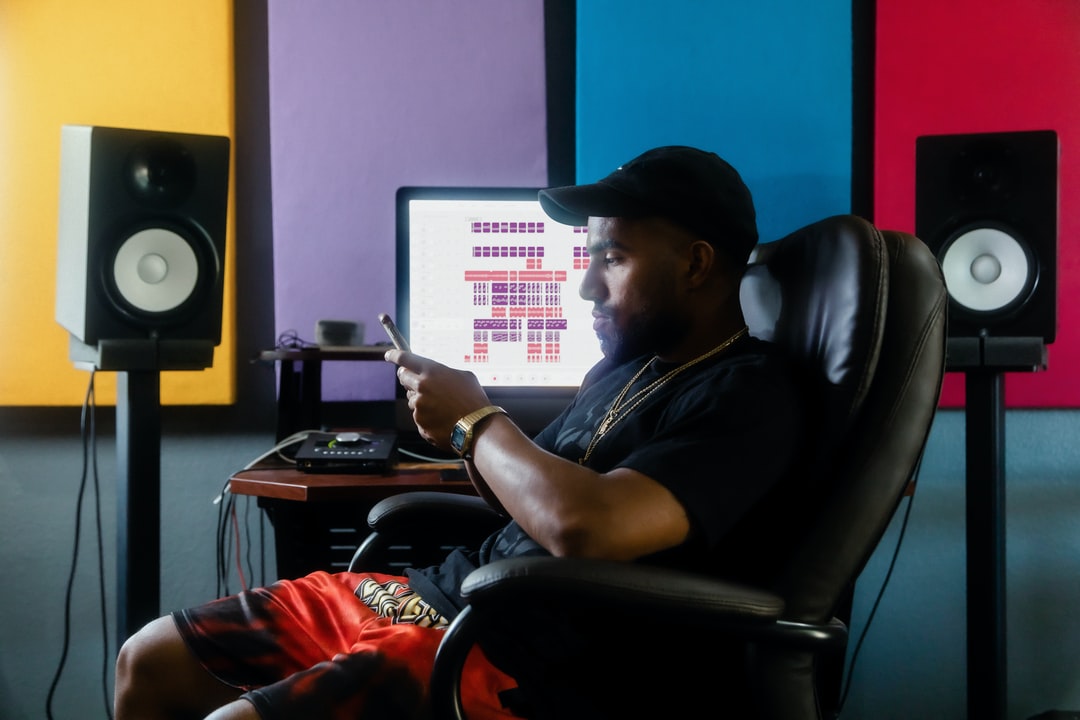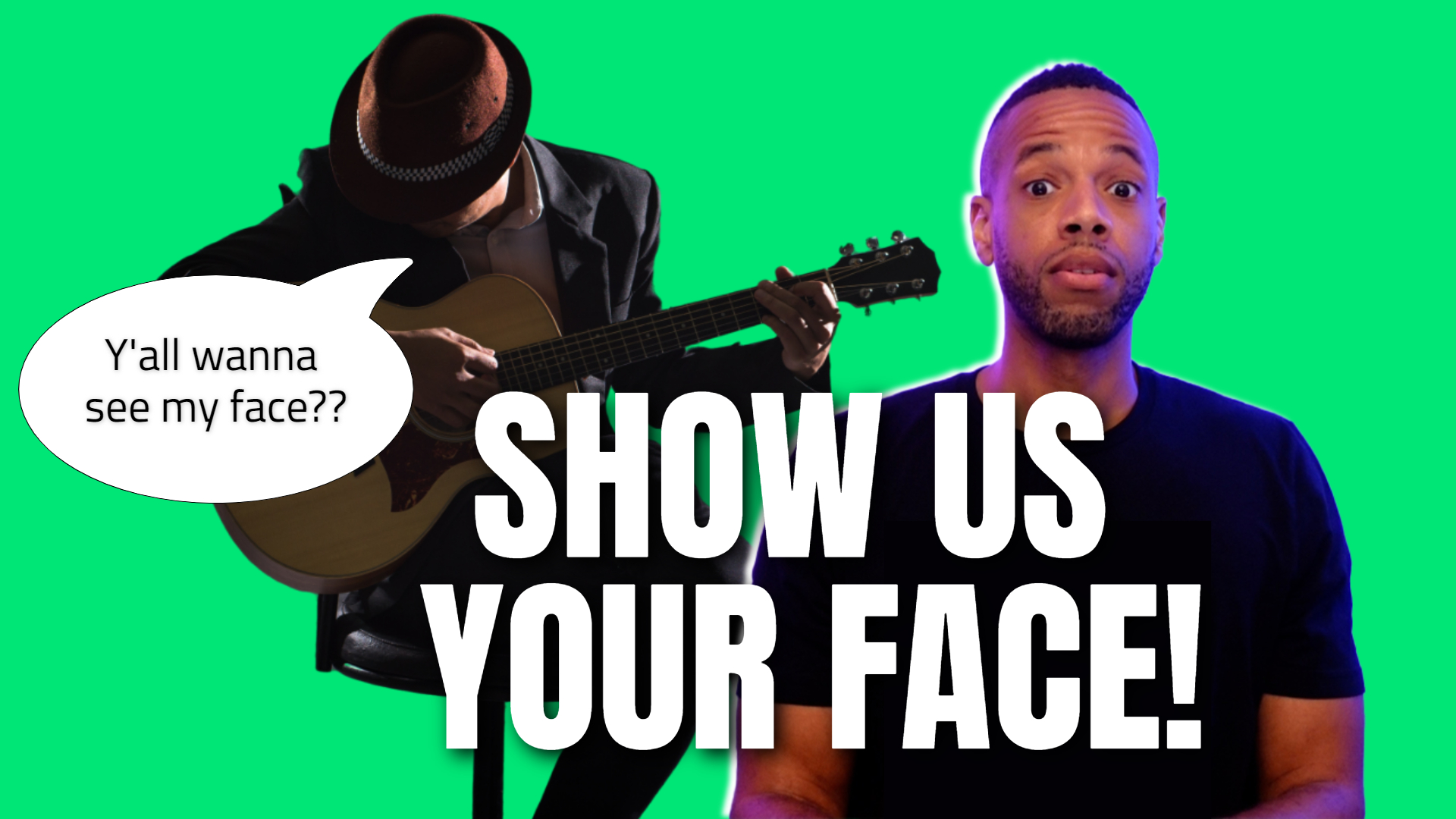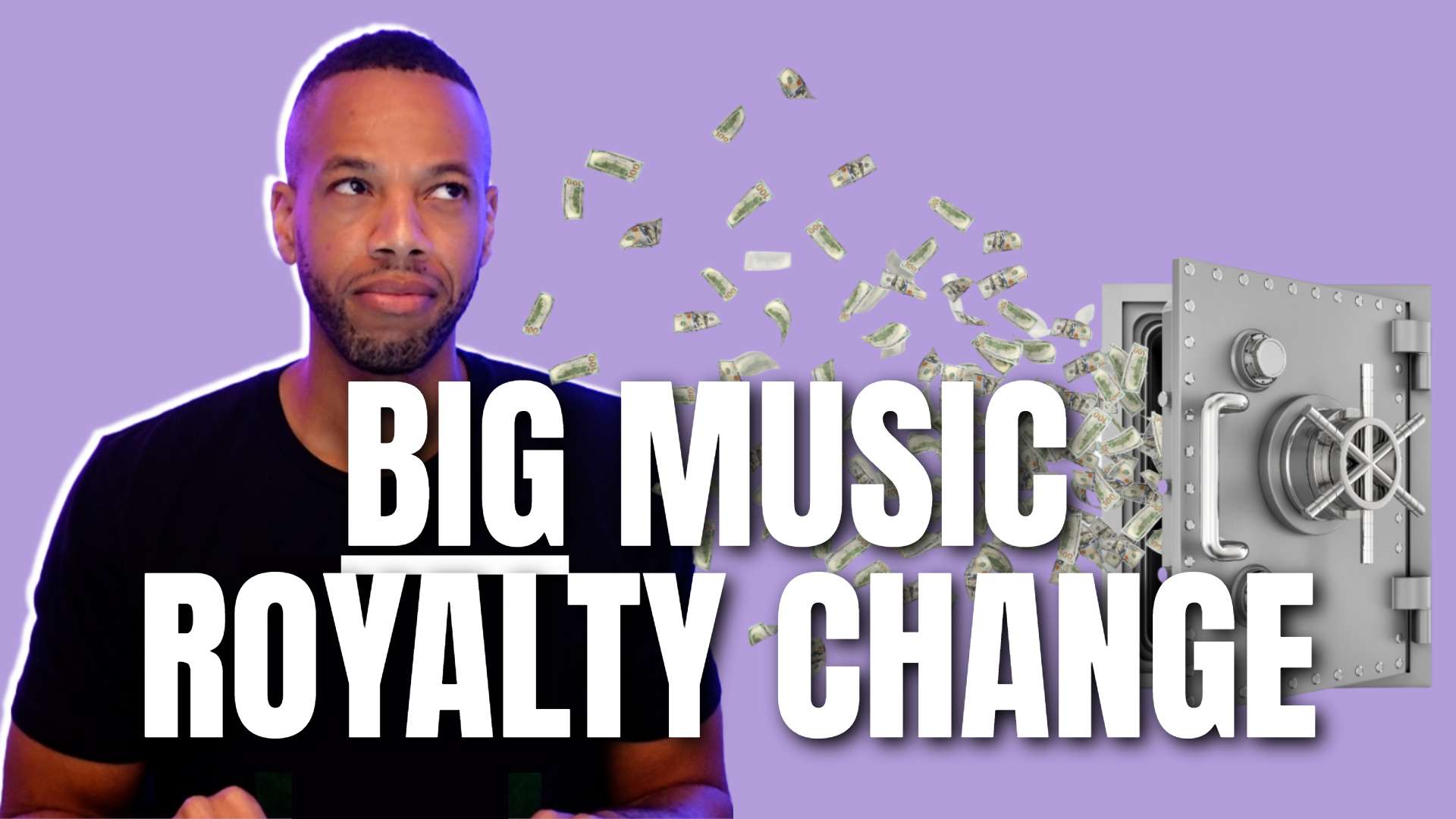Recording Studio Etiquette: 7 Unspoken Rules To Follow

*This article may contain links to affiliate products & services. We have reviewed these services to try and ensure the highest quality recommendations*
Written by Ramsey Brown.
As a professional in the music business, you will come to find that there are skills you must master beyond music in order to become truly successful. Knowing how to properly act and carry yourself in certain situations or environments is an extremely important part of being an artist or musician.
At the end of the day, it really boils down to simple etiquette and basic manners. Most of us know this already, but you’d be surprised to find how many others lack this sort of knowledge. Specifically speaking, in the recording studio. The process of making music is very much collaborative and normally requires teamwork. There are many different personality types and egos that you will come across in the studio, so it’s important that everyone involved has respect for others and an overall sense of studio etiquette.
Typically, you won’t walk into a studio and see a big list of rules on how to behave hanging on the wall. This is something that people either know or should know already when walking into a professional setting. However, after years of experience in many different studios I’ve noticed that this type of common sense isn’t so common.
The music industry is largely based on reputation and opportunities often come from the good word that others put in for you. Your face card holds a lot of weight and can easily be the factor that can make or break your career. Therefore, you want to ensure that you are constantly making a good impression on others.
Recording studio etiquette can be thought of as the golden unspoken rules on how to carry yourself when stepping into the studio. Studio’s are a collaborative and creative space designed to capture the magical moments and beautiful ideas. A musician's vibe, headspace, attitude, and environment when recording all largely impact the outcome of the music.
The people in the studio will ultimately set the energy of the room and determine the productivity of the session. So whether you are an engineer, artist, writer, intern, or just a friend sitting in, having the knowledge of proper studio etiquette can make the difference between an enjoyable and fruitful session or a difficult and frustrating experience.
Everyone is so different in the industry and that is what makes music so beautiful. But in the end, most everyone has the same common goal — make great music. In this article, we are going to share 8 unspoken rules of studio etiquette that everyone should follow to ensure a positive and productive recording experience. Take note!
1) Don’t Invite Friends to Someone Else’s Session
When you're at a recording session that you did not pay for, you shouldn't invite anyone unless you get permission first. Or if you do get permission to invite a few friends, don’t invite ten. When too many people are in the studio, it can be a huge distraction for the artist or producer working. Not to mention, it is rude to invite people to a space that isn’t yours.
Studios aren’t clubs and sessions aren’t parties. Recording sessions should be fun and enjoyable but it should also be taken very seriously. Your music is your job and when you are at the studio, it should be treated like you are in the office working. Nobody would want a bunch of people in their office distracting them — especially if they are not helping out or benefiting to the work itself.
Every second counts when you are recording and trying to make a hit in a limited amount of time. Unless they are assisting with the project, extra bodies in the room do nothing but slow the music making process down.
Also, it is not ideal for producers, engineers, or artists to be around people they do not know or trust when they are trying to create. Making music is a very intimate and personal experience that requires emotions and vulnerability from the artist. This can be very uncomfortable to do around someone that you do not know or are not close with.
So, keep studio guests to a minimum, only bring people you highly trust, and always ask permission from the person paying for the session before inviting any friends into their creative space. Which brings us to our next point….
2) Recorders On, Mouths Closed
Getting in the studio can be an extremely exciting experience, especially for someone who has never really been in a professional recording environment. When you are passionate about music and surrounded by it, it can be natural to talk a lot and exert your energy. However, extra chit-chat is very distracting for the artist or producer working.
When creating, musicians tend to get in a zone where they need to completely hone-in and focus on the music. This zone is very easy to get taken out of when there are too many outside distractions going on.
Furthermore, recording studios are acoustically built and designed to make voices sound like they are being put under a microscope. If someone is recording and there are people talking in the room, even if they are speaking quietly, this can easily feed into the recording and ruin an entire take.
This goes back to our point of not inviting people who are not assisting in the recording process. The more people in the studio, the more background conversations that will be going on. Keep talking to a minimum or leave the room to chat, especially when you are a guest in someone else's session. Also, never accept a phone call when someone else is recording. This should go without saying, but there is almost nothing more rude and disrespectful than accepting a phone call during a session. No matter if someone is recording at that moment or not, always leave the room or go outside to talk on the phone.
3) Be Kind & Respectful… To Everyone
I’ve always said, “treat the janitor the same as you would the CEO” and this couldn’t apply more when it comes to studio etiquette. People in the music industry often get a bad rep for being conniving, egotistical, and overcritical — but this doesn’t necessarily always have to be the case. Everyone should have basic human decency and treat people how they would want to be treated.
This rule should go without saying, but there are too many instances I've personally witnessed inflated egos and lack of respect for others when recording. Especially when it comes to interns, they are often mistreated because of their lack of stature and vulnerability. Interns are overworked and underpaid as it is, do not make their job harder by treating them as if they are beneath you. Instead, include them in the recording process or give them compliments and advice. It’s very possible these interns could be big-shot engineers in the future and I can guarantee they won’t forget how you treated them when they were just a little fish in the pond.
Overall, you should always be respectful and kind to others. You will not always get along with everyone and you may have disagreements with people you work with, but remember you can never take back things you have already said and you do not want to burn bridges that you may need to cross in the future.
4) No Pictures & No Fan-Girling
Many studios have a no camera policy in place and if you are not sure if this rule is enforced at the studio you are in, air on the side of caution. You always want to ask permission before you start snapping photos or videos at the studio. This may not be a big deal in some facilities but even so, don’t be that guy who is taking pictures and videos the entire time people are trying to work.
Also, some studios don’t want photos of their equipment or location online for security reasons. If you are in the studio with bigger name artists, they probably do not want their photos or location all over the internet for the world to see either.
Especially at larger studios in big music cities, it is very likely that you will run into a famous artist or celebrity musician. Though this can be very exciting, especially if it’s an artist you love, you should always remain cool, calm, and collected when interacting in a professional environment. The studio is a sanctuary for musicians and it should always be treated as one.
Keep a professional demeanor and remember that celebrities are people just like you and I. Famous people like to be treated like normal people and when you remain cool around them, you are more likely to leave a good impression rather than the average fan girl they are used to.
5) Leave The Room Cleaner Than You Found it
This is something that I don’t see as often as I would hope to at the studio, hints why I added it to the list. It is not the intern or studio employees job to clean up after you when you are done recording. Unless your mom is there to do it for you, you should always tidy up behind yourself before you leave. This means throwing your trash away, straightening up the furniture if you moved it, wiping down surfaces that you may have gotten dirty, etc.
Even if there is trash that was in the studio before you got there, go the extra mile to leave it cleaner than you found it. I can promise you the little kind gestures like that will be noticed and appreciated by the studio employees. Even if there is a runner or intern who is offering to clean up the studio after you, the right thing to do is help them out. This goes back to rule number two, the intern’s jobs are already difficult enough as it is and the last thing anyone wants to be doing is cleaning up after grown adults who can’t clean up after themselves.
6) You Can Look, But Don't Touch
Unless you are the engineer and are highly knowledgeable on operating the studio equipment, do not touch or tamper with anything. Just the slightest turn of a nob or the smallest adjustment to a setting can throw off the entire console or mix and possibly result in having to re-do an entire project. Thus, you will have a very unhappy engineer — which is something you never want.
It comes to basic respect, don’t touch anything that isn’t yours. If you feel that something is wrong with a setting or sound, ask your engineer about it and politely ask what they can do to fix it. You wouldn’t like it if someone came into your space and started messing around with your personal belongings, so don’t do that at someone else’s studio.
7) Come Prepared & Set Expectations/Goals
One of the worst things you can do in the studio is coming in unprepared. Before stepping foot into the recording session, make sure you have a clear idea of what you want out of the session. This may mean you go in with a couple of beats that you are wanting to work on vocals for. Or you may already have the vocals finished and you want to go in the studio to touch everything up, mix or master it.
Set goals of what you want to achieve from the session and how much time you want to spend working on different projects. If you find yourself spending too much time on one song and you aren’t making a lot of progress on it, move on to the next one and come back to that song later. Think of everything you may need for the studio in advance. Make a list or pack a bag ahead of time so you don’t risk the chance of forgetting something like your USB or lyric book. Walk in the session ready to go so you don’t waste your time or the engineer's time.
Don’t forget that being prepared emotionally is just as important as being prepared physically. Before recording, it is crucial that you are in a good headspace. Tune out any outside distractions or negativity and go in fully ready to deliver the best work possible. How you are feeling during the time of recording will ultimately result in the outcome of the record. This also means you shouldn’t go out and party or stay up late the night before. You want to be 100% when going to the studio and if you are hungover or lacking sleep, it could easily ruin the entire session.
Wrapping Up
I hope that if you are a recording artist, you are already aware of most of these rules and follow them every time you are at the studio. If not, there's no better time than now to implement practices to make you a better musician and industry professional!
Recording should be a fun, enjoyable, and productive experience, but the lack of studio etiquette can quickly throw off the vibe and disrupt the creative process. If you have any friends that are or are aspiring to be a recording professional, feel free to share this article with them. Knowledge is power and the more you know, the more you grow!
When your song is ready to go, it's time to start promoting it to potential fans! Omari has the best organic promotion services money can buy. With packages for Spotify, TikTok, Instagram, and YouTube, we will get your music the traffic and attention it deserves! Click below for more information.
SPEAK YOUR MIND
How This INDIE Artist Got Over 67,598,275 Streams On ONE Song
Join the No-Nonsense Music Marketing Newsletter to get the most valuable weekly case studies and strategies to grow your music business!




